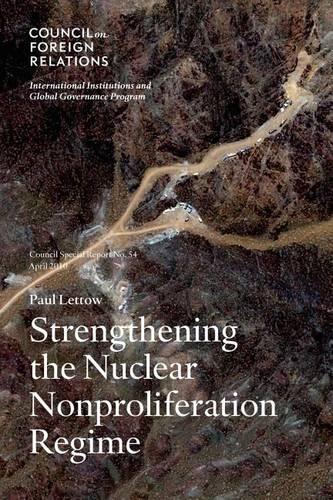
Strengthening the Nuclear Nonproliferation Regime
(Paperback)
Publishing Details
Strengthening the Nuclear Nonproliferation Regime
By (Author) Paul Lettow
Council on Foreign Relations
Council on Foreign Relations
4th May 2010
United States
Classifications
Professional and Scholarly
Non Fiction
Nuclear weapons
327.1747
Physical Properties
Paperback
68
Description
The international nuclear nonproliferation regime is under severe strain. North Korea is the first state in the history of the forty-year-old Nonproliferation Treaty (NPT) to have signed the treaty as a nonnuclear weapon state and subsequently developed nuclear weapons. The intentions behind the Iranian nuclear program are ambiguous at best. And a number of other states, particularly in the Middle East, are proceeding with programs that could allow them to become latent or actual nuclear weapon states. Curtailing the spread of nuclear weapons will be critical to U.S. and international security in the decades to come. It will require a durable and effective international regime based on the NPT and supported by multilateral and bilateral arrangements. In this timely report, Paul Lettow explains the current and looming nuclear challenges facing the United States and points a way ahead. He analyzes the important flaws in the regime and sets out a comprehensive strategy that the United States can pursue in the next two years to bolster it. His plan includes restricting the spread of dangerous dual-use technologies and strengthening the ability to detect and respond to noncompliance with the regime's rules.
Author Bio
Paul Lettow is adjunct senior fellow at the Council on Foreign Relations.
